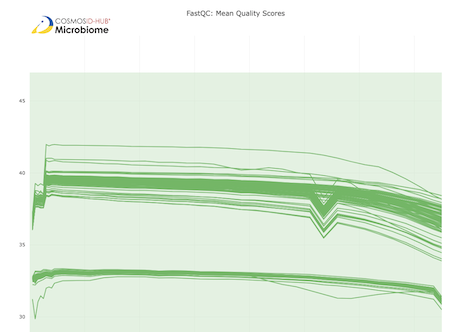Written by Nayeim Khan
The process of sequencing determines the DNA or RNA nucleotide bases within a sample. A sequence, also referred to as a read, is generated for each fragment in the nucleotide library and reveals the sequence they are aligned in.
Modern sequencing technologies can generate a massive number of sequence reads in a single experiment. However, no sequencing technology is perfect, and each instrument will generate different types and amounts of errors, such as incorrect nucleotides being called. These wrongly called bases are due to the technical limitations of each sequencing platform.
Therefore, it is necessary to understand and identify error types that may impact the interpretation of the downstream analysis. Inspecting sequence quality visually with a sequence quality histogram, adapter content percentage plot, etc. is, therefore, an essential first step in next generation sequencing (NGS) analysis. Catching errors early saves time later on.

In order to facilitate scientists and researchers in visually exploring the QC metrics for their sequencing data, we are pleased to announce the integration of MultiQC on the CosmosID-HUB Microbiome. The integration of Multi-QC will allow users to aggregate their sequencing QC data and visually explore them using interactive charts and graphs all at once.
The integration of MultiQC is part of CosmosID’s microbial genomics platform, CosmosID-HUB Microbiome which is continually expanding with various features and workflows for analyzing microbial communities and for inferring translational and actionable microbiome insights. Currently, CosmosID-HUB Microbiome analyzes 16S, whole genome, and ITS sequencing data and provides options for discovering antimicrobial resistance and virulence markers, microbial taxa (composition), and function. The overall CosmosID-HUB platform includes our COVID-19 pipeline, which detects the presence of COVID-19 and characterizes variants of concern or interest in both clinical and wastewater specimens. The HUB provides researchers with the flexibility to access and pay for the type of analysis they require.
To learn more about MultiQC, please see our documentation here.

